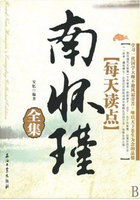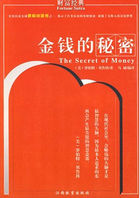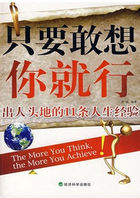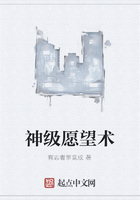John Davison Rockefeller's Little Ledger
约翰·戴维森·洛克菲勒的小账本
I believe it is a religious duty to get all the money you can, fairly and honestly; to keep all you can, and to give away all you can.” So said John Davison Rockefeller, at the age of 60, when he was softly fingering the yellowed leaves of a precious document, his own Ledger, which he had kept as a 16-year-old assistant bookkeeper in a Cleveland commission house till now.
John Davison Rockefeller was the richest man in the world at the height of his career. Starting his business life as a poor boy in an office, with little formal education and no capital except what he saved by economy out of meager earnings, he finally became the pioneer of efficient business organization and of the modern corporation, the greatest philanthropist of his age and patron of higher education, scientific research and public health in the history of the world.
John D. Rockefeller's ancestors immigrated to America from near Coblenz on the Rhine in 1720. The early pioneer spirit and a simple and unyielding religious faith were always the traditions in the Rockefeller family. Rockefeller himself testified, during his infrequent reminiscences of his life, to the business lessons he received from his father almost as soon as he was able to walk and talk. His mother, who was a strict disciplinarian and “used a birch switch”, also encouraged him in hard work, economy and thrift.
Rockefeller's parents taught him to make charity to the poor, even when he was a small boy. Under his father's guidance, little Rockefeller kept from boyhood an account of every cent he received and spent and gave away everyday. The first of all these account books, a small paper-backed memorandum book, which became famous in later years as “Ledger A”, contained a record of everything, including “philanthropies” of a cent or two and small incidents of his early life.
Finding this little book twenty-five years later in a collection of old papers, Rockefeller recalled how he had economized so much in those days that he had even kept his accounts on the cover. Ledger A showed us that as a boy, Rockefeller began to give a cent to his Sunday school every Sunday. In one month there were entries of 10 cents to missions, 35 cents to his Sunday school teacher for a present and 10 cents to the poor people of his church, etc.
“I had a peculiar training in my home,” Rockefeller once said. “I cannot remember when hard work was new or strange to me. We were taught to work, to save and to give. Ours seemed to be a business training from the beginning. We were encouraged to be self-reliant. I was taught to do as much business at the age of 10 or 11 as it was possible for me to do. I did not require the presence of anybody to enable me to secure good measure of good wood from the men who sold it. I was sent over the hills to buy cordwood. It was good training for me.”
Rockefeller discovered the secret of making money at the age of 14. He had saved $50 from his turkey sales and the performance of chores for his father and the neighbors. Lending this at 7 per cent, he received the principal and interest back at the end of a year. About the same time he received $1.12 for three continuous days of backbreaking labor, ten hours a day, digging potatoes for a neighbor. On entering the two transactions in his ledger he realized that his pay for this hard work was less than one-third the annual interest on his $50 and resolved to make as much money work for him as he could.
The story of his first business experience is told in “Random Reminiscences of Men and Events”, the only book that Mr. Rockefeller ever published. “When I was 7 or 8 years old,” he wrote, “I engaged in my first business enterprise with the assistance of my mother. I owned some turkeys, and she presented me with the curds from the milk to feed them. I took care of the birds myself and sold them all in business-like fashion. My receipts were all profits, as I had nothing to do with the expense account, and my receipts were kept as carefully as I knew how.”
A legend in connection with the boy's ownership of the turkeys was that they had strayed away and had been lost for several days, and that his mother promised him he could have them for his very own if he found them. He searched for the turkeys with the same thoroughness that he displayed in his maturity and finally found them after much trouble.
Finally, may it be that the words of Rockefeller could lead us to the understanding the secret of his success from a humble office boy to the world oil controller: Sons of wealthy parents have not the ghost10 of a chance compared with boys who came from the country with the determination to do something in this world.
“我认为公平、诚实地赚得钱财,拥你所有、献你所有是一种宗教责任。”六十岁的约翰·戴维森·洛克菲勒说道,手指轻划过一本珍贵文稿中泛黄的书页。这本保存至今的珍贵文稿是洛克菲勒十六岁时在克里夫兰的一家证券经济公司里当助理记账员时用过的账本。
约翰·戴维森·洛克菲勒曾是全球首富,那时正是他的事业巅峰。洛克菲勒的商业生涯是从一名办公室里的穷小子开始的。那时的洛克菲勒没受过多少正规教育,除了从他微薄的工资中节省出的一点钱之外,他几乎毫无资本。洛克菲勒最终成为了高效商业机构的创建者,也是现代企业的先驱。洛克菲勒是他所处时代最伟大的慈善家,同时也是世界历史上最伟大的高等教育、科学研究及公共卫生的出资人。
约翰·戴维森·洛克菲勒的祖先早在1720年就从莱茵河畔的科布伦茨移民到了美国。早期拓荒者的精神以及朴素而不屈服的宗教信仰一直是洛克菲勒家族的传统。洛克菲勒本人曾证实在他一生为数不多的记忆里,在他刚学会走路和说话的时候,他的父亲就开始向他传授经营之道了。他的母亲,手持“白桦树鞭子”,是个十分严厉的人,同样鼓励他要努力工作,生活节俭。
洛克菲勒小的时候,他的父母便教育他对穷人要施舍。在他父亲的引导下,小洛克菲勒从儿时起便开始记录他每天的收入和花销。第一份账本是一本黑色封皮的小型备忘录,无事不记,包括为“慈善事业”捐赠过一两美分,或他早年的一些小事等等。后来,它成了“第一本小账本”。
二十五年后,在一堆旧纸中发现了这个小本子,它勾起了洛克菲勒的回忆,他当时为了节省,甚至在本子封面上记账。“小账本”记录了孩童时期的洛克菲勒每个周日就已经开始给主日学校(基督教教会为了向儿童灌输宗教思想,在星期天开办的儿童班)捐赠1美分。账本中记录了仅在一个月内,他曾向布道团捐赠10美分,并花了35美分给主日学校的老师买礼物,在社区的教堂向穷人施舍10美分的事情。
“我家里的训练很是特别,”洛克菲勒曾说道,“我已经记不起来从何时起艰苦的工作对于我来讲已不再是新鲜或是陌生的事了。父母教我们干活、节约、还有给予。我们的训练似乎从一开始就是一种商业训练。父母鼓励我们自立。在10或11岁时,父母便尽可能多地教我去经商。我被派到几座山外的地方去买锯成4英尺长的木材。我不需要别人帮我确定卖家木材质量的好坏,这对我来讲是一次很好的锻炼。”
洛克菲勒在14岁时便发现了赚钱的秘诀。通过卖火鸡以及为他的父亲和邻居干活儿,他节省下了50美元。然后以百分之七的利息贷出,年末他连本带利一并收回。同时,通过给一位邻居挖马铃薯,每天十小时,连续三天高强度的体力劳动,他挣得了1.12美元。当洛克菲勒在他的账本上登记这两笔交易时,他发现艰辛劳作的所得还不及他50美元每年利息的三分之一,这让他下定决心要尽自己所能去工作,赚更多的钱。
关于洛克菲勒第一次经商经历的故事在他出版过的惟一一本《往事拾零》中有过描述。“在我七八岁时,”他写道,“在母亲的帮助下我开始了自己的第一次买卖。我养了几只火鸡,母亲把从牛奶中提炼出的凝乳给我,作为火鸡的饲料。我自己来照料这些鸟儿,然后跟做生意一样,把它们卖了出去。账单对我来说没什么用处,收条显示了利润,因此我用自己所知道的方式小心地保存着这些收据。”
有一个关于洛克菲勒饲养火鸡的传说:他家养的火鸡走失了好几天,母亲向他保证说,如果他能够找到这些火鸡的话,火鸡就归他所有。小洛克菲勒展示出了他的成熟,进行了彻底的搜寻,终于在重重障碍之下找到了那些火鸡。
最后,也许我们能从洛克菲勒的一席话语中领悟出这位从一文不名的办公室男孩到世界石油掌控者的成功秘诀:比起那些下定决心要闯一番事业的乡下孩子,富人子弟则无半点机会。
译者感言
约翰·戴维森·洛克菲勒的一生极其富有传奇色彩。从一个白手起家的乡下小伙子到富可敌国的“石油大王”,从一个对钱财斤斤计较的小职员到乐善好施的慈善家,洛克菲勒的人生历程不得不为世人所惊叹。然而,洛克菲勒的成就与他幼年时所接受的父亲严格的“金钱教育”是密不可分的。洛克菲勒的父亲曾送给他一个小账本,让他记录下每天的收支情况,于是年幼的洛克菲勒便养成了节约用钱、计划开支的良好习惯。同时,洛克菲勒还靠给他的父亲做“雇工”去挣零花钱,虽然收入不多但这却使年幼的洛克菲勒懂得了金钱是要靠劳动获得的道理。同样,洛克菲勒的子孙们都遵循了送给子女小账本的传统,让他们去记载每一分钱的用途和时间,而且要求孩子们的账目要精确到一美分。在这种理财观念的影响下,洛克菲勒家族的后代们都养成了珍惜自己的劳动所得且不任意挥霍的理财习惯,并在这种理财观的指导下将洛克菲勒家族的财富延续至今。















